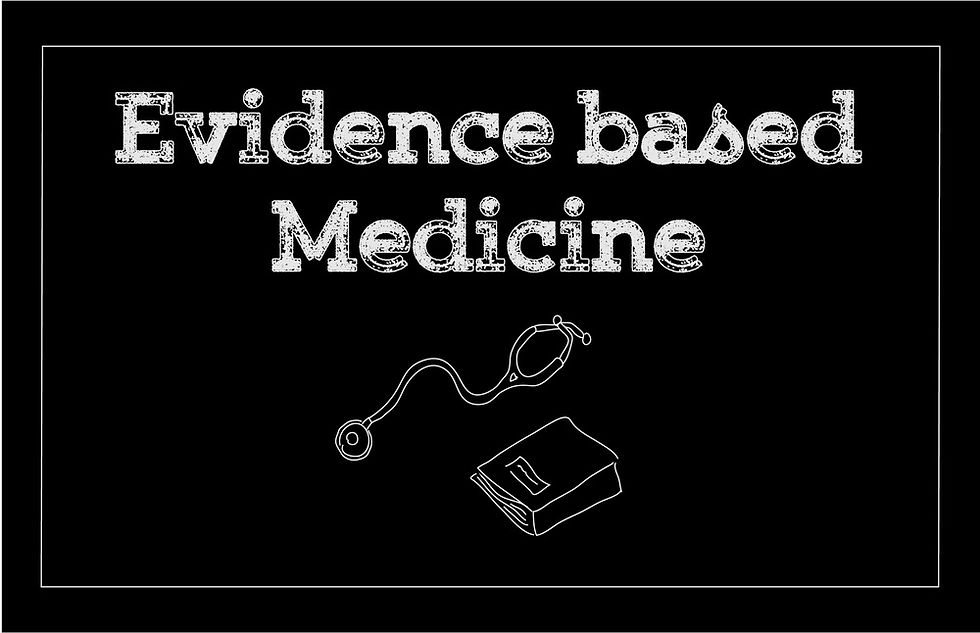Your GP doesn't always know best! The perceived hierarchy of medicine.

I want to start off by saying immediately that this isn't a sleight or a dig at GP's, or in response to a particularly incident. I for one appreciate how pushed and pressured GP's are, to work within very strict timescales and would not swap with them, even for their salaries!
In fact, this article has been under process for a few months and after speaking to some GP's to gauge their perception of this situation. I will use some of their feedback but keep their identify anonymous. With this supporting information and their agreement with the perception, I feel I can now publish this article.

It wasn't that long ago that if you weren't well for any reason, you would go to your doctor or in fact your doctor would perhaps come to your home. Your GP would also build a rapport with you and your family due to knowing you quite well.
As time has moved forward, not only has GP and patient contact become so limited, other professionals now have autonomy in their own professional rights, have increased their knowledge bases far beyond that of what many people in the general public perceive. Healthcare Professionals include: Physiotherapists, Podiatrists, Occupational Therapists and Midwives are all required to have their own registration to practice. In doing so, are answerable to their own practice and clinical reasoning. A healthcare professional can be struck off just like any medical professional,.

Within Healthcare professions, there are specialities within them. From here on, I can only speak from a Physiotherapy perspective. When I was training and newly qualified, we were expected to be able to not only deal with people with muscle and joint problems (musculoskeletal) but to have a working knowledge of chest related problems (respiratory) and people that have been affected by conditions such as stroke, Parkinson's or Multiple Sclerosis (neuro-physiotherapy). Other specialisms such as care of the elderly, burns and plastics, rheumatology and palliative care exist too. It stands to reason that as a physiotherapist increases its experience, one will develop a tendency to favour a particular aspect of their chosen profession. Whilst I was qualifying and in my junior years, not only did I have an interest in musculoskeletal, I was also very keen in respiratory physiotherapy.
It must also stand to reason that once a physiotherapist has a chosen specialism, they trade off their knowledge of other specialisms to enhance their knowledge in their chosen field. For example; I am not afraid to admit if I had a patient who had suffered from a stroke, my knowledge on their rehabilitation would be far more limited than if someone presented to me with a knee problem. This is transferable to the medical field too. Whilst GP's have an excellent understanding of a whole range of medical conditions, they cannot be expected to have an extensive knowledge of every aspect of medicine. I spoke to one GP colleague who said: "I agree there is still a perceived hierarchy of medicine. I am absolutely hopeless when it comes to MSK [musculoskeletal]"
Another GP colleague also said to me: "It would be fantastic if you could pass some of your knowledge onto my team in some of our training sessions".
So why is this article being written?

For your benefit! Because of this very perception of many members of the general public. A good GP, like a good Physiotherapist should not be afraid to advise you that something is outside of their scope of practice and refer your concern to a professional who can give you more pertinent advice for your condition. Ask yourself; does your GP do this? I know I would rather be told that a professional hasn't got the answer but will refer to someone who does, than to give me what they think is correct and not be in my best interest.

I for one pride myself on keeping my knowledge up to date on the efficacy of protocols and procedures, so I know I give my clients the best advice to make their informed choice. A GP cannot be expected to to keep up to date on every new piece of evidence that is published in every aspect of medicine and healthcare, much the same I cannot keep up to date with all evidence in every aspect of physiotherapy.

And it also stands to reason that if we as physiotherapists do not have the answer or feel that your concern is better seated with another professional, then we too refer your concerns on to other professionals. It's not necessarily a given anymore that your GP has all of the answers. No one does. But the right professional has the right answer. And if they don't, they should be referring you to a person who does. Don't be afraid to challenge decisions and don't think because a healthcare professional has an alternative view to a medical professional, that medicine outranks healthcare. All aspects of healthcare has its place. No one aspect outranks another.



















